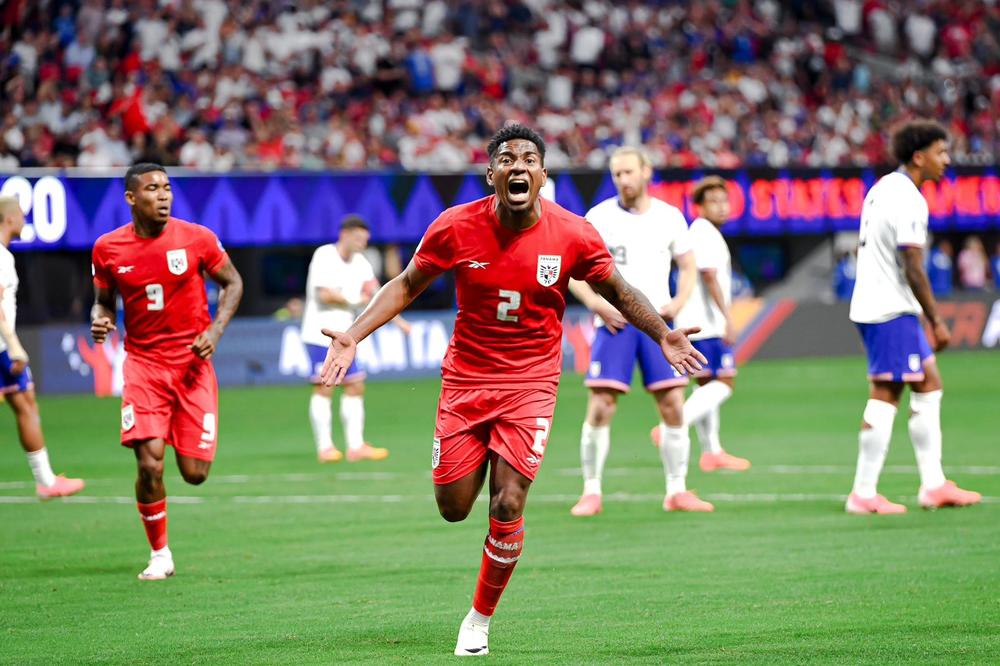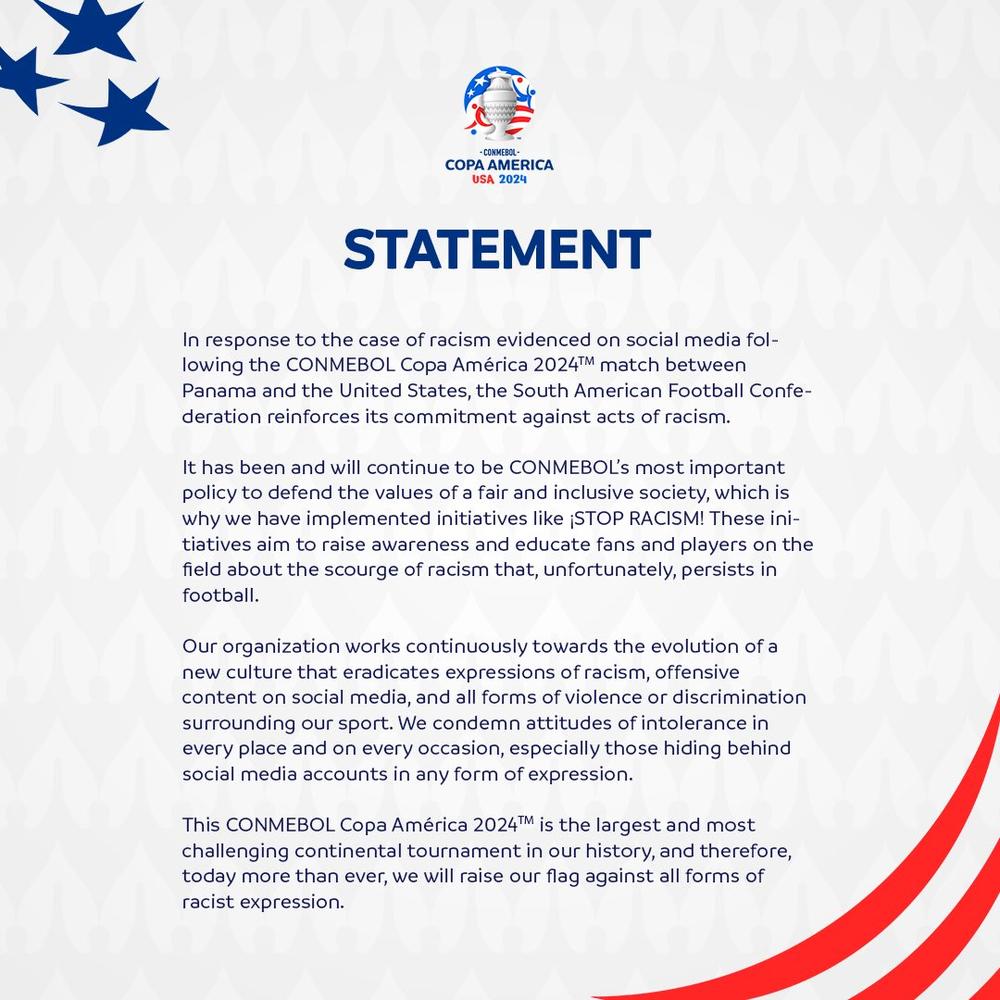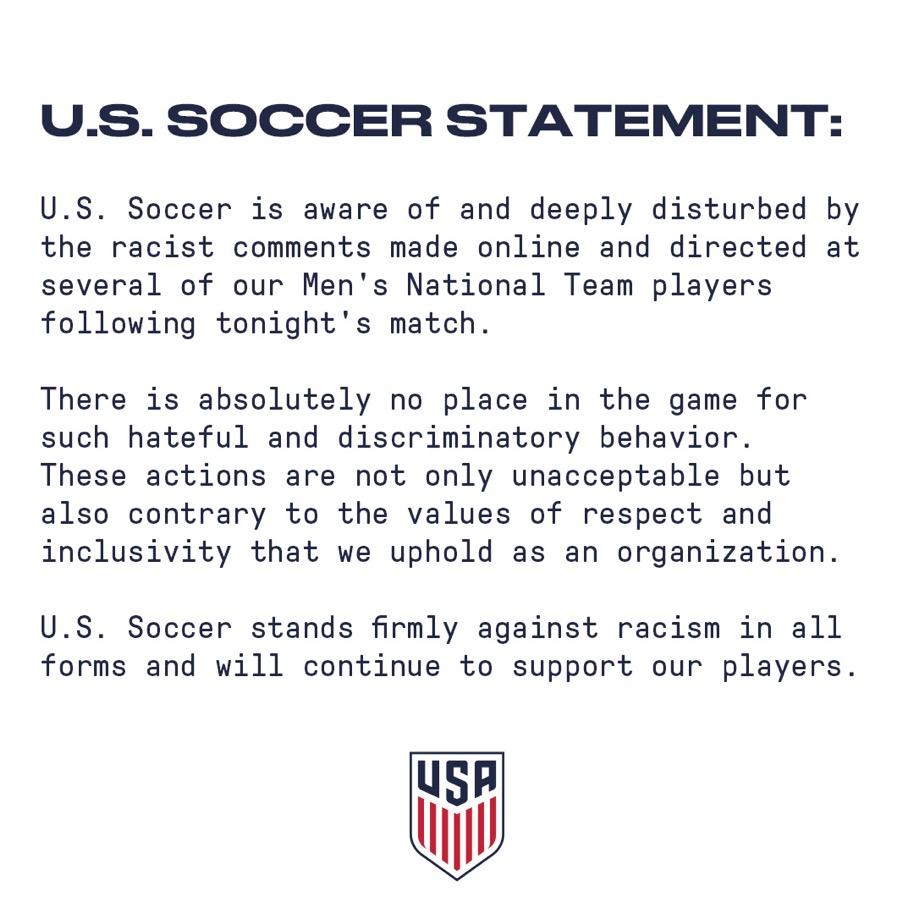Section Branding
Header Content
At the epicenter of U.S. soccer, Atlanta experiences a seminal moment for the Men's National Team
Primary Content
It is a testament to Atlanta — “Soccer City, USA” — that just over 59,000 people made it to Mercedes-Benz Stadium to watch the U.S. Men’s National Team take on Panama in match day two of the Copa America Thursday. The fans of the red, white, and blue came to a dinner-hour kickoff and fought traffic, rolling road blocks, and detours to see what was a seminal moment in the tenure of U.S. Men's National Team head coach Gregg Berhalter and the host country of the tournament.
It still ended up being a seminal moment, but not for the reasons anticipated.
In the first quarter-hour of the match you had a U.S. goal called back on video review, the U.S. goalkeeper undercut and injured, and the moment that handicapped the US for the remainder of the night. courtesy of FOX Soccer:
The U.S. took the lead, playing 10 v.11, but surrendered it four minutes later on a shot that went through the legs of defender Chris Richards and past goalkeeper Matt Turner.
“I think, with the red [card], it completely changed everything,” Richards admits. “After the red card, our game plan was just to play the counter. That's all we pretty much could do with it at that point with the man down, so no, we want to play our style and the playing style is ‘bring it to them.’ Because of the red card, we have to do what we have to do and try to get a goal.”
Berhalter made three changes at the start of the second half — one of them involving Turner being subbed off for Ethan Horvath in net. It was later released that a “leg contusion” was the concern for the US coaching staff, not the shoulder as it appeared on the broadcast in the 12th minute incident.
TUDN reporter Michele Giannone caught up with Turner after the match and there was concern over his left knee. He is questionable for the Uruguay group stage finale on Monday. Turner also told him: “I don’t know why but I had this feeling before the match that something bad was going to happen.”
Turner breezed through the mixed zone of reporters and he reiterated over and over again that he’ll be fine. He looked like he was walking fine. But walking and performing at a high level are two entirely different things.

In the second half, Salvadoran center referee Ivan Barton continued to be the center of attention- for all the wrong reasons. A penalty kick was called against US defender Cameron Carter-Vickers but it was wiped off the board on video review in the 63rd minute. And, at the same time, there is a train of thought that teams play more freely with ten men than in an 11 v. 11 situation. USMNT captain Christian Pulisic combined with Folarin Balogun for a near miss with twenty minutes remaining and Ricardo Pepi couldn’t corral a pass to the far post with ten minutes left. He got a little contact to it, but the header was easily handled by the Panamanian keeper, Orlando Mosquera.
Two minutes later, Panama finally took the lead as Jose Fajardo took advantage of the U.S. not clearing a ball out of their defensive third. On the third recycling of the play, Fajardo hit a low strike past Horvath.
“Fighting against teams like this we're gonna have to understand that we have to defend for 90-plus minutes,” Richards adds. But he was also giving his team high marks on defending with ten men for 80 minutes and being only a few minutes away from getting a draw.
With only a few minutes left of the 90, Barton became center stage again as Panama midfielder Coco Carrasquilla (for lack of a better verb) lumberjacked Christian Pulisic and created an incident that yielded a red card and three more yellow cards before the final whistle.
Thanks, once again, to FOX Soccer:
And all the behavior only put four minutes on the board after the 90the minute, which added another matter that made less than no sense.
The U.S. would make one more rush and miss a late chance over the bar for the final margin.
“You know, we talked beforehand about the tendencies of this referee,” Berhalter said after the match. “And you know, to be honest, I think we played right into his hands and we made it, you know, that decision I think pretty easy. You know, Tim got bumped he got checked and he reacted. He apologized to the group and I think he understands what a difficult position he put the group in. Nonetheless, it happened, and as a result we lost this game. “We're going to have to move on and figure out how to win the next game,” he said.
In the final stats, Barton called 19 fouls on Panama, only four on the USA. But the yellow and red card distribution was 4 to 3.
“If you want to win this tournament, you've got to be capable of beating good teams and it would have would have been nice to be Panama today and know that we're pretty much at an advantage with the next (match),” Antonee Robinson said. “Of course, it would have been a lot more stress off the next time. We could have played a bit more freely, but now we have to go into it as if we've got final because it very well could be our last game of the tournament.”
Weah would issue a public apology for his action on his Instagram account after the match. But striker Folarin Balogun was the recipient of racist entries on his social media accounts. Both U.S. Soccer and CONMEBOL issued very quick rebukes of that kind of behavior by fans of the sport.


So, the US heads into a last match in Kansas City in the group stage needing to look at these scenarios to advance into the knockout stage of the 2024 Copa America:
If Panama beat Bolivia, the U.S. must beat Uruguay and will then depend on goal difference (the first tiebreaker).
If Panama and Bolivia draw, the U..S. would advance with a win or a draw.
If Bolivia beat Panama, the U.S. would advance with a win or a draw, while a loss forces math involving goal difference.
Word of warning, however, Bolivia is 41 spots lower in the international power rankings than Panama at present. The U.S. will also have to navigate the match on Monday against the top team in the group without Tim Weah and, possibly, Matt Turner in net.


